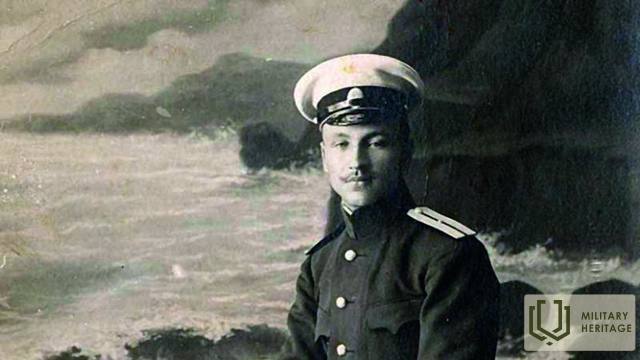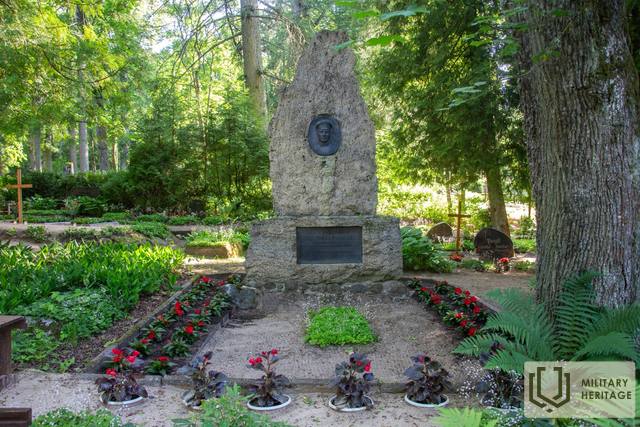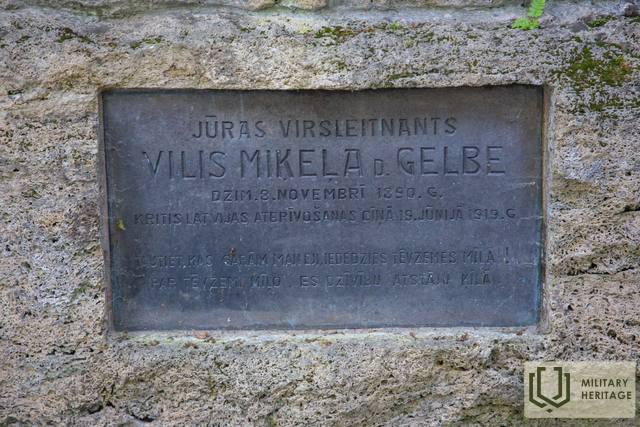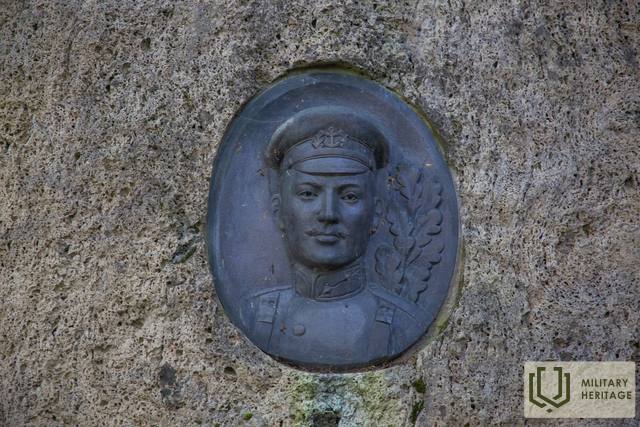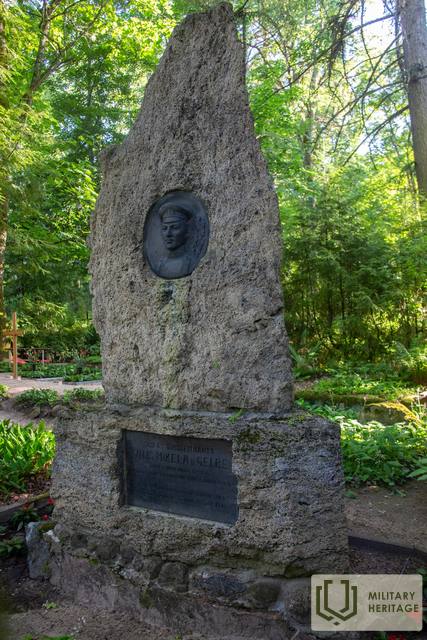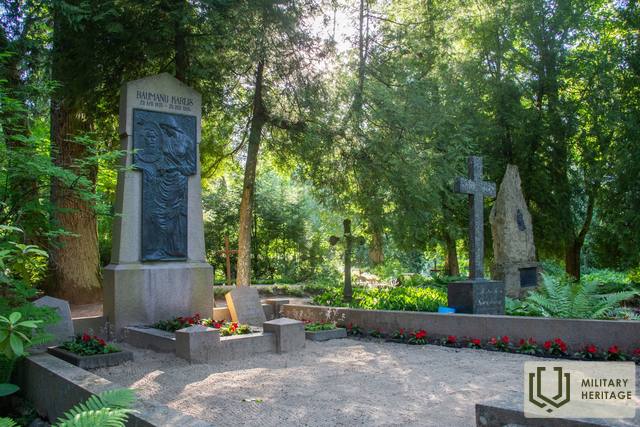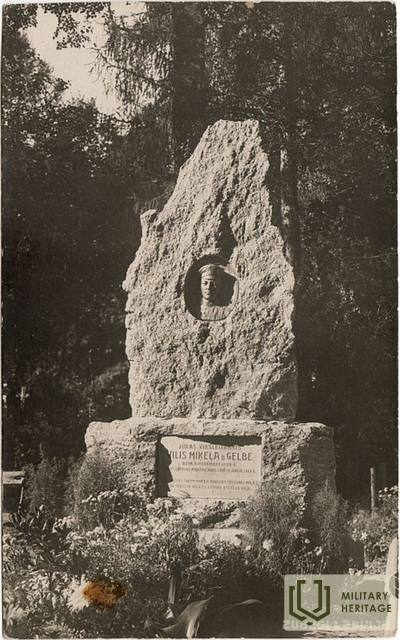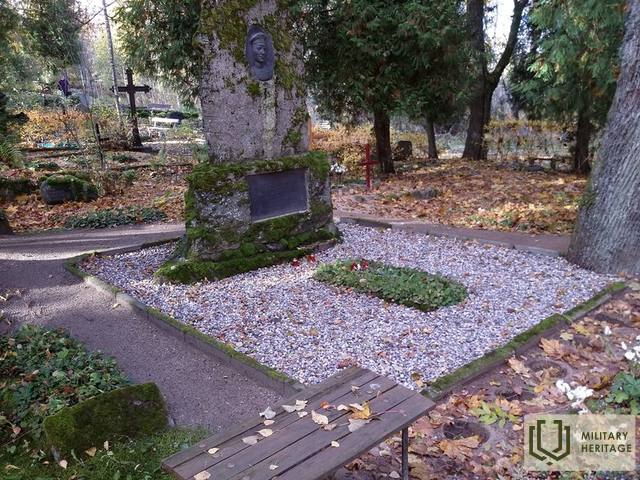Monument to the sea lieutenant, L.k.o.k. Vilis Gelb (1890-1919)
Memorial site
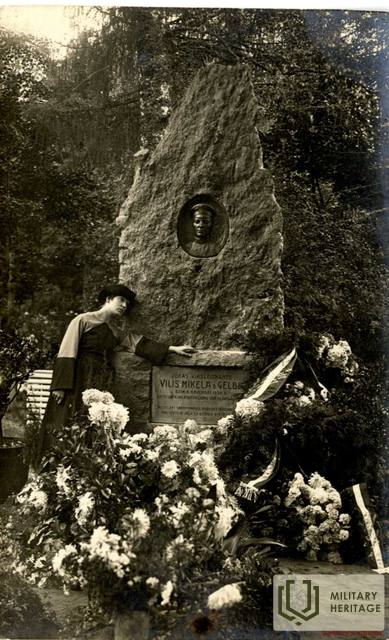

 90
90



Located in Limbažu Jūras iela cemetery, Jūras iela 56, Limbaži
The monument opened on September 10, 1922 by the then President of Latvia Jānis Čakste, on which the dedication of the poet Viļas Plūdonis to Vilis Gelb is read:
"Compatriots who pass by me, light up in the love of the fatherland,
for the beloved fatherland, I pledge my life."
Vilis Gelbe (1890-1919) was born in Kurzeme, Zemīte parish, but he is also closely related to the Limbaži side, because at the beginning of the Latvian War of Independence, he returned to Latvia from St. Petersburg and joined the North Latvian Brigade.
In May 1919, V. Gelbi commanded Limbaži, he became the military commandant of the area and was able to inspire local men and also very young guys to join the army.
V. Gelbe's activity at that time in Limbaži and its surroundings was very important, his duties included not only maintaining order in the city and its surroundings, but also mobilization, providing food for soldiers and horses, and solving many other issues that cannot be included in orders and instructions. The Commandant's team organized by him acted as a coordinated mechanism to provide the North Latvian Brigade with the most effective assistance possible. The commander's team went to the aid of the regular army in special cases, and he set an example for the new soldiers. V. Gelbe was the first Latvian army officer who proposed to award his subordinates with the III class of the Order of Imanta. There was no order yet. Imanta's name appeared in the open only on March 20, 1920, when the minister of defense, Karls Ullman, was presented with an outline of the establishment of the military order. However, the name of Lāčplėš was chosen for the order.
Vilis Gelbe died during the battles of Cēsis - on June 19, 1919, during a reconnaissance. Later, Gelb was awarded the Láčplēš War Order, however, historians believe that his contribution has not been properly appreciated until now. This is mainly explained by Gelbe's membership in the Northern Latvian Brigade.
The so-called Southern Latvian brigade, which was initially commanded by Oskars Kaplak, later Jānis Balož, competed with the Northern Latvian brigade, which was commanded by Jorģs Zemitāns.
Used sources and references:
https://www.sargs.lv/lv/vienibas-un-personibas/2016-11-25/mazak-zinamais-ziemelnieks-vilis-gelbe
https://www.lsm.lv/raksts/dzive--stils/vesture/izdota-gramata-par-brivibas-cinu-dalibnieku-vili-gelbi.a298469/
Related timeline
Related topics
Related stories
About the National Patriot Chief Lieutenant Vili Gelbi
The fate of Senior Lieutenant Viļa Gelbe (1890-1919) reflects the difficult situation in the formation of our country and army, as well as in the evaluation of these events.
With the proclamation of the Latvian state on November 18, 1918, the War of Independence and the work of forming the armed forces also began. Vilis Gelbe, a naval lieutenant born in Kurzeme, was in the front ranks of Latvian volunteers.
The beginning, course and end of the battles of Cēsis
The victory in the battles of Cēsis was destined to become a turning point in the struggle of Latvians and Estonians for the independence of their country. This victory crossed the line between Andriev Niedra's government and German General Riediger von der Goltz's plans to conquer the Baltics. Instead, the Provisional Government of Kārlis Ulmanis resumed its activities in Liepāja.




